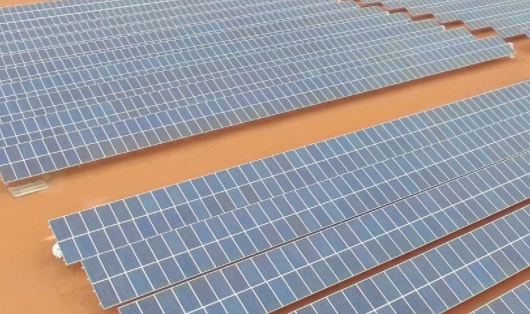The Fremantle-based developer has secured approval to build the array from the MidWest/Wheatbelt Joint Development Assessment Panel (JDAP), according to a statement to the Australian Securities Exchange. However, the green light from JDAP is just one of several final development approvals that Carnegie will need to obtain before it can launch construction.
The company — which develops solar, storage battery and wave energy projects — is now working with undisclosed stakeholders to obtain additional approvals. It hopes to wrap up the approvals process in the coming weeks so it can make a final decision on its investment in the Northam project.
Carnegie first announced plans to develop the 10 MW array in March. It will build, own and operate the AU$20 million project on its own. It expects construction to take about six months.
However, it has not yet revealed which company will supply the 34,000 solar panels needed for the project. The array will be built on a 25-hectare site about 100 km east of Perth. Carnegie says that the installation will be designed for optional integration with a battery storage system. Upon completion, the solar project will generate about 24 GWh of electricity per year. It aims to finish building the project by the end of the fourth quarter.
Popular content
In May, Carnegie — which recently merged with Australian microgrid specialist Energy Made Clean — revealed that it had finished drawing up plans to deploy its CETO wave energy technology as part of a microgrid system it is building in Mauritius. The first stage of the $990,000 project will include a 2 MW solar array and a 2 MW/0.5 MWh battery system.
Earlier this month, Carnegie delivered a 2.6 MWh battery storage system for use in a 1.6 MW solar project in Murchison, Western Australia — roughly 800km northeast of Perth.
This content is protected by copyright and may not be reused. If you want to cooperate with us and would like to reuse some of our content, please contact: editors@pv-magazine.com.


By submitting this form you agree to pv magazine using your data for the purposes of publishing your comment.
Your personal data will only be disclosed or otherwise transmitted to third parties for the purposes of spam filtering or if this is necessary for technical maintenance of the website. Any other transfer to third parties will not take place unless this is justified on the basis of applicable data protection regulations or if pv magazine is legally obliged to do so.
You may revoke this consent at any time with effect for the future, in which case your personal data will be deleted immediately. Otherwise, your data will be deleted if pv magazine has processed your request or the purpose of data storage is fulfilled.
Further information on data privacy can be found in our Data Protection Policy.